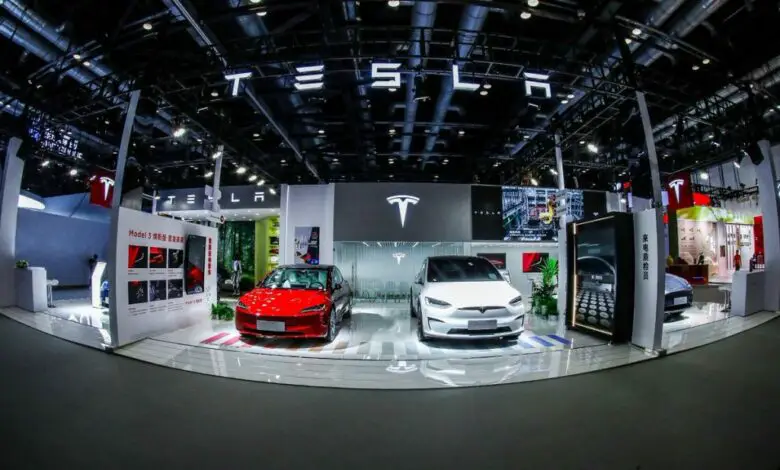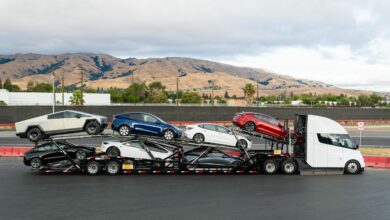
Tesla Faces Scrutiny Over Electric Vehicle Subsidies in Europe Amid China Export Concerns
EU Launches Probe into Chinese EV Exports, Raising Questions About Fair Competition and Subsidies
In a recent development, Tesla and other Chinese automakers exporting electric vehicles (EVs) to Europe have come under scrutiny as European Union (EU) officials launch a probe to examine the fairness of subsidies granted to European EV buyers. This investigation has raised concerns about whether companies like Tesla gain an unfair advantage by manufacturing their vehicles in China and shipping them to the European market.
Key Takeaways:
- Tesla’s success in the European EV market has been partially attributed to its Chinese Gigafactory in Shanghai, which exports vehicles like the Model 3 to Europe.
- EU executive vice-president Valdis Dombrovskis announced that there is “sufficient prima facie evidence” to warrant an investigation into Tesla and other Chinese automakers.
- Chinese officials, including Commerce Minister Wang Wentao, argue that China’s dominance in the EV sector is a result of innovation, free competition, and a comprehensive industry system.
Tesla has long utilized its Chinese Gigafactory in Shanghai as a key export hub for the European market. While the company also operates a production facility in Germany, it primarily assembles the Model Y there. In contrast, the popular Model 3 for the European market is manufactured in Shanghai and has been available for a more extended period, contributing significantly to Tesla’s market share in Europe.
EU officials are now questioning whether Tesla and other Chinese automakers gain an unfair advantage by producing EVs in China and then exporting them to European customers. Valdis Dombrovskis, the EU executive vice-president, stated that there is enough initial evidence to justify launching an investigation against Tesla and other Chinese companies, such as Geely, the owner of Volvo.
Dombrovskis, in an interview with the Financial Times, emphasized that the probe is not limited to Chinese-brand EVs but may also include vehicles from other producers if they receive production-side subsidies. He stressed the importance of fair competition, citing that some large markets have already imposed tariffs on batteries for EVs from China. The EU, he noted, is potentially the largest open market for these Chinese companies.
On the other side of the debate, Chinese officials, including Commerce Minister Wang Wentao, have expressed strong opposition to the anti-subsidy probe. They argue that China’s success in the EV sector is the result of years of research and development innovation, open competition, and a well-developed industry ecosystem.
Wang Wentao expressed serious concern about the EU’s initiation of an anti-subsidy investigation into Chinese electric vehicles. The Chinese commerce ministry has accused the EU of “protectionism” and warned of potential macroeconomic effects, such as disruptions to environmental cooperation between regions and global automotive supply chain stability.
Approximately one-fifth of all EVs sold in Europe are built in China, making this investigation a critical issue that could impact the future of the EV market on both continents. As the probe unfolds, stakeholders will closely watch its implications on Tesla, Chinese automakers, and the broader electric vehicle industry.



